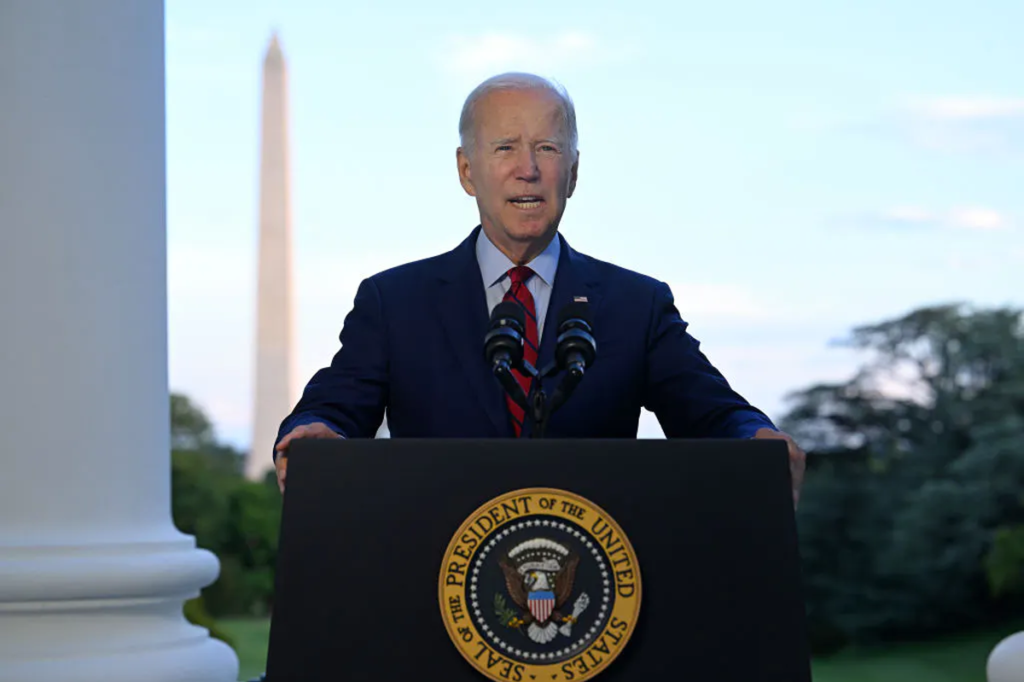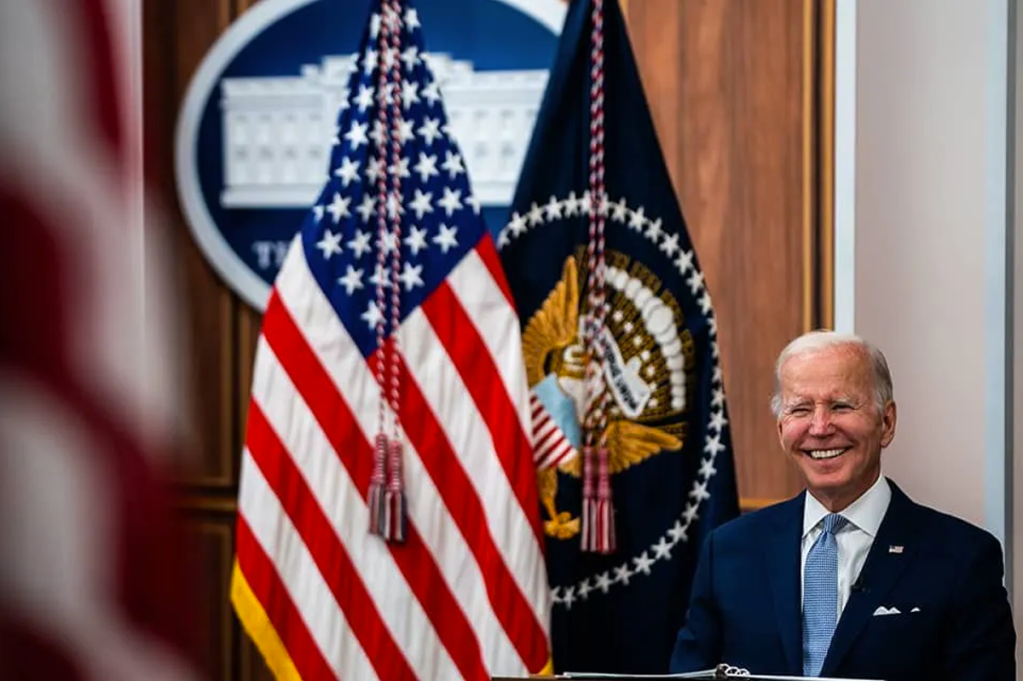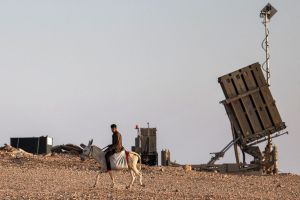Joe Biden’s week did not get off to a good start. When running for office in 2020 he repeatedly boasted that he was going to “shut down the virus,” not the country. And then in the space of a few days last week it looked as if he had managed to achieve his promise, just the opposite way around. The president appears to have shut down the economy while suffering from the virus.
Despite being endlessly vaccinated, the president recently tested positive for Covid. And then last week he tested positive again. So he had a double dose. At the same time America had a double dose of something else: negative GDP growth. People started talking about the “R” word: recession. Until recently two successive quarters of negative GDP growth was a common enough definition of an economy in recession.
But Biden and his team did not wish to make that concession. The president’s Treasury secretary, Janet Yellen, was among those urging people not to engage in the “semantic battle” about whether two quarters of negative GDP growth did in fact constitute a recession. She pointed to all the good things that are happening in the US economy, creating a perfect post-modern moment. Things are what we say they are. If the president says it is a recession, then it is a recession. If he and his Treasury secretary say it isn’t a recession, then it isn’t.
As though to add to the archetypal weirdness of the age, various online resources, including the never-reliable Wikipedia, dutifully rewrote their definitions of “recession” so their preferred candidate could not be said to have led the country into any such thing. These websites then locked their pages. There is something almost awe-inspiring in the way in which our age can do this. Deny reality, redefine things and try to make everyone agree to the new definition, only then to become furious if people do not go along with it. See also “Woman” (noun).
Still, by any measure, this was not where Biden and his supporters wanted him to be at this point in the electoral cycle. America is looking to the midterms in November and for the president this week’s combination of events were certainly suboptimal: wheezing and hacking his way through a denial that the economy is technically in recession.
At such junctures there are only a couple of things a politician can do to improve matters. The most famous is to have the good fortune to pass by a pond into which a sympathetic-looking child has fallen, save the child and return to dry land with a kind of “Aw shucks, I only did what any guy would do” attitude.
Sadly that opportunity did not present itself to the president this week. But the next best thing did, for Biden had the opportunity to order a drone strike on the head of al-Qaeda, Ayman al-Zawahiri. On the Monday after his week of Covid and recession, Biden took to the nation’s screens to announce that America had located and droned Osama bin Laden’s former second-in-command: the man who took over the al-Qaeda franchise after bin Laden’s death eleven years ago.

As the president said, the drone strike on a house in Kabul showed that the United States will always get their man. Zawahiri had been one of the masterminds of the 9/11 attacks, the attack on the USS Cole and the bombing of America’s embassies in Kenya and Tanzania in 1998. All in all, he shared responsibility for the deaths of thousands of Americans. If it is true, as we have been told, that an American drone managed to kill Zawahiri on Sunday without any collateral civilian casualties, not even Zawahiri’s family, then that is more impressive still.
But in other ways the news was underwhelming. In total it has taken America’s intelligence agencies almost a quarter of a century to find the man behind the African embassy bombings. As a trailer for the world’s worst film might say, they were in a race against time: who would get Zawahiri first — American intelligence or old age?
Fortunately it was the Americans. But as often with these hubristic moments, the success did not last. It soon transpired that the Americans had located Zawahiri because he had been visiting his family, and that the house in Kabul in which he was staying was just feet away from the American and British embassies.
It was pretty insulting when, after a decade of tearing up the earth in pursuit of Osama bin Laden, he turned out to be living safely in the territory of our “ally” Pakistan. Zawahiri, by contrast, was visiting family in a country which the US and her allies handed back to the Taliban only just under a year ago. The best impetus for the US invasion of Afghanistan twenty-one years ago was to prevent Afghanistan being a safe haven for terrorists. But after two decades of failing to govern or secure the country, the Biden administration handed it back to the same people they had tried to liberate it from twenty years earlier.
There is some comfort in the fact that America can still exert its military dominance from the skies. But that is the only place it can be said to hold sway. Below it is a mess.
News of the death of Zawahiri soon became a reminder not of American victory but of American defeat. Had President Biden himself not boasted a year ago that the elementary mission of Afghanistan was long accomplished, and that al-Qaeda was no longer in Afghanistan? He did. So why was the decade-long head of al-Qaeda sitting feet away from the British embassy in Kabul until just under a week ago? Because he felt that it was safe to do so — as many of his allies have also doubtless concluded. Zawahiri was the world’s most wanted terrorist and it took quarter of a century to catch up with him. His death is a victory, certainly. But like so many of this president’s victories, it reminds you of an awful lot of defeat.
This article was originally published in The Spectator’s UK magazine. Subscribe to the World edition here.


















